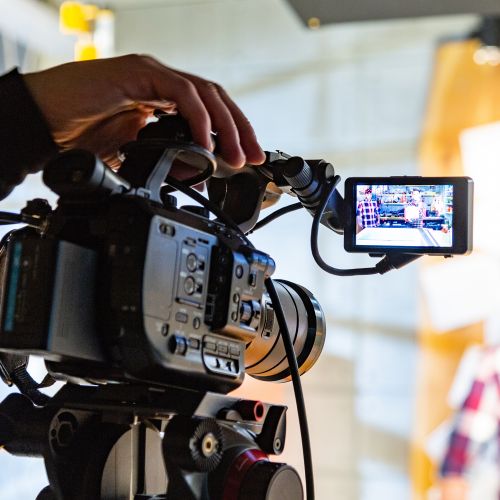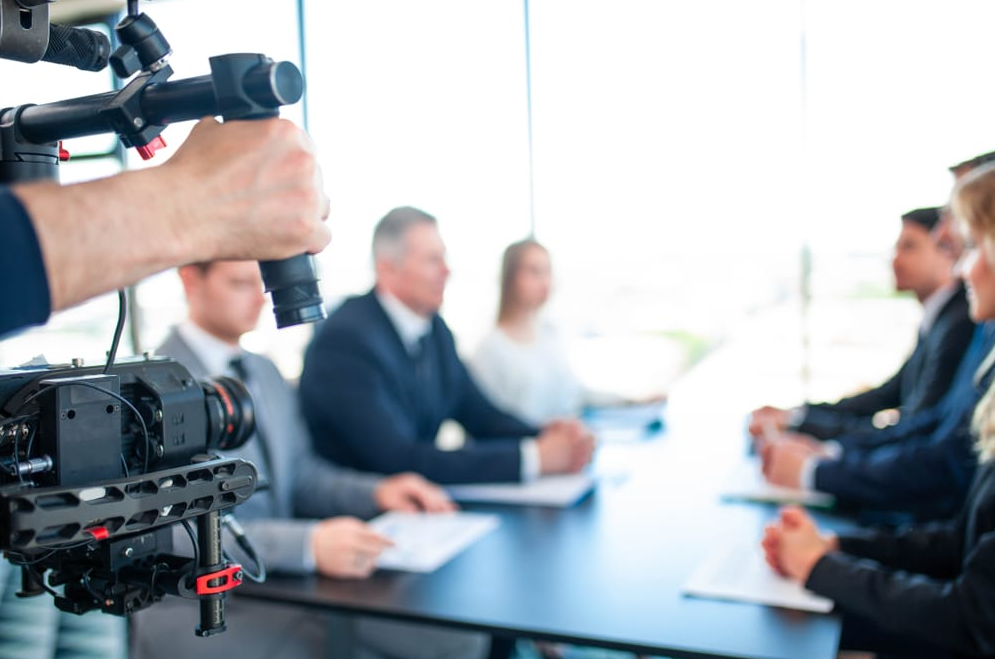The Function of Legal Videography in Depositions and Tests
Legal videography has arised as a necessary tool in both depositions and tests, supplying a multifaceted strategy to documenting witness testaments. By catching not only the spoken word but additionally the nuances of non-verbal interaction, this medium improves the reliability of statements and maintains crucial evidence for future proceedings. As attorneys progressively identify its value, it motivates a deeper assessment of how these visual documents can affect juror perceptions and test end results. What implications might these developments hold for the future of legal method?
Value of Lawful Videography
Legal videography plays a critical function in the documents and discussion of depositions and trials. This specialized area combines technological skills with lawful knowledge to create a dependable record of proceedings that can significantly affect instance outcomes. The visual element of lawful videography enhances the understanding of witness testimony, permitting jurors and judges to observe not just the spoken words yet also the behavior, emotions, and body language of the witnesses.

The importance of lawful videography expands beyond the court; it additionally plays an important role in preserving evidence for future reference, whether for appeals or more legal activity. Therefore, its combination right into the legal procedure is necessary for making sure a reasonable and precise representation of the facts, inevitably adding to the search of justice.

Process of Legal Videography
While catching the nuances of depositions and tests, the process of lawful videography includes a number of important actions that make sure top notch, exact recordings. A professional lawful videographer prepares by examining the situation materials and understanding the details needs of the deposition or trial. This prep work includes acquainting themselves with the individuals and the context, which aids in capturing significant information.
On the day of the recording, the videographer establishes the necessary tools, which normally includes high-definition electronic cameras, microphones, and appropriate lighting. Guaranteeing ideal angles and audio high quality is critical, as it straight impacts the performance of the recording. The videographer interacts with attorneys and individuals to establish methods, making sure that everyone understands the recording process.
Throughout the deposition or trial, the videographer diligently tapes the proceedings, paying very close attention to both verbal and non-verbal cues. legal videography. This includes catching the temperament and responses of witnesses and lawyers. After the session ends, the videographer might modify the video for clarity and compliance with legal standards, generating an end product that precisely mirrors the procedures for future recommendation and usage in lawful contexts
Benefits in Depositions
The unification of videography in depositions provides many benefits that enhance the overall procedure of gathering evidence. One primary advantage is the capability to record witness statements with visual and acoustic fidelity, providing a more accurate depiction of the witness's demeanor, tone, and body language. This multidimensional strategy allows lawyers and juries to assess credibility a lot more efficiently than standard written records alone.
In addition, videographed depositions act as an effective device for preserving statement. Ought to a witness become unavailable for test, their tape-recorded deposition can be played in court, making certain that their evidence stays obtainable and appropriate. This element significantly reduces the danger of losing critical details that can impact situation results.
Additionally, using legal videography advertises far better preparation for attorneys. Examining video clip footage permits lawful teams to assess and improve their strategies, determining staminas and weak points in their instances. This preparatory advantage can lead to more engaging discussions in court.
Finally, videography enhances the general professionalism and trust of the deposition process, instilling confidence in customers regarding the thoroughness of their legal depiction. By leveraging innovation, lawyers can considerably boost the effectiveness of depositions.
Influence On Tests
In many trials, the assimilation of videography can considerably influence the discussion of evidence and the jury's understanding. Legal videography records witness testimonies and crucial evidence in a vibrant format, enabling jurors to engage with the material on multiple levels. This visual part enhances the narration facet of a trial, offering context and psychological vibration that standard text-based evidence may do not have.
Additionally, video clip recordings can serve as powerful devices for impeachment during interrogation. When inconsistencies emerge Homepage between a witness's previous statements and their court testimony, video clip evidence provides an objective referral that can guide jurors' opinions. This immediacy and clearness can strengthen the reputation of an event's story while simultaneously threatening opposing debates.
Additionally, using videography can assist improve complex info, making it more easily accessible to jurors that may struggle to comprehend elaborate details presented only through spoken testament. By incorporating visuals with acoustic information, lawful videography can improve retention and understanding, ultimately affecting the jury's decision-making procedure. For that reason, the impact of videography in trials expands beyond mere appearances; it plays a vital duty fit the lawful landscape and outcomes.
Future Trends in Legal Videography
As we look towards the future of lawful videography, several emerging fads guarantee to reshape its function within the court room. One considerable fad is the integration of fabricated intelligence (AI) in video clip analysis and modifying - legal videography. AI can simplify the process of identifying key moments in tape-recorded depositions, enabling lawyers to promptly access relevant content, thus boosting performance in case prep work
Furthermore, the increase of online fact (VR) and enhanced reality (AR) innovations is anticipated to change exactly how jurors experience evidence. By immersing jurors in a substitute setting, these innovations can offer an extra extensive understanding of intricate scenarios, resulting in more educated considerations.

Moreover, the enhancing demand for remote depositions, accelerated by the COVID-19 pandemic, will likely continue. Lawful videographers will need to adjust to brand-new software application and platforms to make certain high-grade recordings in digital setups.
Last but not least, the growing emphasis on data protection will certainly necessitate more stringent methods for keeping and sharing video evidence. As the lawful landscape progresses, lawful videographers need to remain abreast of these patterns to maintain their significance and efficiency in the browse around this web-site judicial procedure.

Final Thought
In recap, Read Full Report legal videography offers an essential function in the judicial process, enhancing the honesty of depositions and tests. By catching the nuances of witness testaments, this medium not only protects crucial proof however likewise aids in providing details successfully to jurors. The significance of visual paperwork in examining integrity and promoting interrogation can not be overstated. As technology proceeds to evolve, legal videography is positioned to further change its role within the legal landscape.